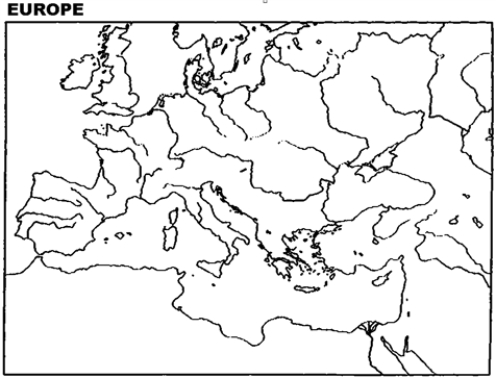Exam 10: Intellectual Transformation: the Scientific Revolution and the Age of Enlightenment
Exam 1: The Ancient Near East: the First Civilizations82 Questions
Exam 2: The Hebrews: a New View of God and the Individual74 Questions
Exam 3: The Greeks: From Myth to Reason95 Questions
Exam 4: Rome: From City-State to World Empire93 Questions
Exam 5: Early Christianity: a World Religion79 Questions
Exam 6: The Rise of Europe: Fusion of Classical, Christian, and Germanic Traditions89 Questions
Exam 7: The Flowering and Dissolution of Medieval Civilization84 Questions
Exam 8: Transition to the Modern Age: Renaissance and Reformation92 Questions
Exam 9: Political and Economic Transformation: National States, Overseas Expansion, Commercial Revolution84 Questions
Exam 10: Intellectual Transformation: the Scientific Revolution and the Age of Enlightenment86 Questions
Exam 11: The Era of the French Revolution: Affirmation of Liberty and Equality92 Questions
Exam 12: The Industrial Revolution: the Transformation of Society79 Questions
Exam 13: Thought and Culture in the Early Nineteenth Century82 Questions
Exam 14: Surge of Liberalism and Nationalism: Revolution, Counterrevolution, and Unification78 Questions
Exam 15: Thought and Culture in the Mid-Nineteenth Century: Realism, Positivism, Darwinism, and Social Criticism86 Questions
Exam 16: Europe in the Late Nineteenth Century: Modernization, Nationalism, Imperialism93 Questions
Exam 17: Modern Consciousness: New Views of Nature, Human Nature, and the Arts78 Questions
Exam 18: World War I: the West in Despair83 Questions
Exam 19: An Era of Totalitarianism87 Questions
Exam 20: World War 2: Western Civilization in the Balance55 Questions
Exam 21: Europe After World War 2: Recovery and Realignment, 1945-198963 Questions
Exam 22: The Troubled Present55 Questions
Select questions type
Which of the following was a recognized leader of the French Enlightenment?
(Multiple Choice)
4.8/5  (39)
(39)
Please define the following key terms. Show Who? What? Where? When? Why Important?
-William Harvey
(Essay)
4.9/5  (43)
(43)
The climax of the Scientific Revolution rests with the work of
(Multiple Choice)
4.8/5  (36)
(36)
Please use this outline map of Europe to answer the question(s).
 -On a blank map of Europe, show where the following individuals worked: Isaac Newton, Tycho Brahe, Galileo Galilei, Nicholas Copernicus, and René Descartes.
-On a blank map of Europe, show where the following individuals worked: Isaac Newton, Tycho Brahe, Galileo Galilei, Nicholas Copernicus, and René Descartes.
(Essay)
4.9/5  (32)
(32)
Please use this outline map of Europe to answer the question(s).
 -Compare the ideas of Thomas Hobbes, John Locke, and Jean Jacques Rousseau about the manner in which the state was formed. What was the relationship of the citizen to the state according to each of these men?
-Compare the ideas of Thomas Hobbes, John Locke, and Jean Jacques Rousseau about the manner in which the state was formed. What was the relationship of the citizen to the state according to each of these men?
(Essay)
4.9/5  (39)
(39)
Which of the following systematically observed the planets and stars and recorded their positions with far greater accuracy than had ever been done?
(Multiple Choice)
4.9/5  (36)
(36)
Showing 81 - 86 of 86
Filters
- Essay(0)
- Multiple Choice(0)
- Short Answer(0)
- True False(0)
- Matching(0)